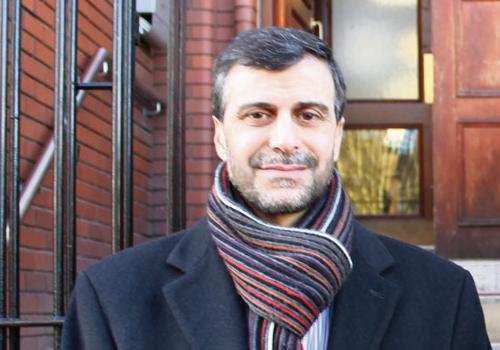Double standards and institutional Islamophobia in our banking system
FORUM: Bank accounts should never be weaponised to punish people based on their opinions, religious affiliations, or political stance, as long as those expressions are lawful
Friday, 4th August 2023 — By Mohammed Kozbar

Mohammed Kozbar
IN a society that proclaims its commitment to justice, equality, and freedom of speech, recent events have brought to light a troubling double standard.
When our mosque’s bank account was unjustly closed in 2014, there was little concern or acknowledgement despite trying everything to highlight the issue.
However when Nigel Farage, a figure known for his divisive views on British Muslims and other minorities, faced a similar fate, it sparked a national uproar, raising questions about political bias and the unequal treatment of individuals.
The issue is not whether one agrees or disagrees with Farage’s views, but the fundamental principle of equal treatment under the law for all individuals, regardless of their political beliefs or religious identity.
Bank accounts should never be weaponised to punish people based on their opinions, religious affiliations, or political stance, as long as those expressions are lawful.
The closure of our mosque’s bank account had severe and far-reaching consequences. Financial operations became an uphill battle, as we struggled to maintain our day-to-day operations.
Paying staff salaries became a challenge, and the disruption of standing order donations resulted in a significant loss of much-needed income.
The ability to conduct transactions and pay essential bills, such as those to utility companies, was brought to a standstill.
This disruption added to the mounting challenges faced by the mosque and hampered our efforts to serve the community effectively.
We successfully challenged the decision legally, and we were awarded an apology and a compensation of damages from Thomson Reuters for their inaccurate and opaque assessment of us, which contributed to the decision to close our account.
Beyond the financial strain, the closure of our bank account dealt a blow to our reputation for no justifiable reason.
It caused unwarranted damage to the image of the mosque, undermining the efforts we had tirelessly invested to rebuild and reposition ourselves as not just a place of worship but a community centre for all.
Despite our hard work to change perceptions and foster positive engagement, the closure of our bank account reinstated negative stereotypes and misconceptions.
Yet, despite these challenges, we persevered. The mosque community rallied together to address the financial setbacks, seeking alternative solutions to keep our doors open and services running.
Through resilience and determination we managed to rebuild our reputation and reestablish the mosque as a vital community hub.
But the scars left behind were not easily erased. The damage caused by the closure of our bank account continued to linger, affecting our relationships with other institutions, and making it exceptionally difficult to open a bank account with reputable high street banks.
The lingering repercussions have been a constant reminder of the injustice we faced and the unequal treatment endured.
As we reflect on the contrasting reactions to the closure of Nigel Farage’s account and our mosque’s account, it becomes evident how the media and political establishment have perpetuated a double standard.
While Farage’s situation garnered national attention and support, our struggles were largely ignored and dismissed. This disparity in response lays bare the pervasive Islamophobia that still exists in our society.
It is a call to action for policymakers, financial institutions, media, and society to confront these injustices and demand equal protection under the law, irrespective of political views or religious identity.
We must learn from such incidents, addressing these double standards head-on, recognising the real-life consequences of discriminatory actions and the lasting impact they can have on individuals and communities.
By empathising with the struggles faced by minority groups like ours, we can build a more inclusive and compassionate society that upholds justice and equality for all its members.
• Mohammed Kozbar is the chairman of the Finsbury Park Mosque